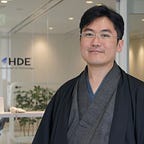Day 1 — Learning from a Mild Injury
From early 2020 to early 2022, we were under the pandemic, so I tried not to come to the office and practice remote working. Around March or April 2022, the mood and the cases eased as everyone got vaccinated, so I decided to return to the office again. I’ve found myself very unhealthy, and not used to walking because of the two years of remote working, so I decided to walk every day while commuting, skipping several stations.
It was enjoyable and refreshing, but after two months of doing that, at the beginning of May, suddenly, my heel started to ache. I got diagnosed with “Achilles tendon enthesopathy.” The doctor said it would take at least months to recover, and I should avoid walking when it hurts. Terrible! I should have taken care of my legs more every day, like doing a good stretch or massaging it more, considering my age (I’m 47, and I’ve never ever walked that much until this age).
For the last half of this year, I have been avoiding walking as much as possible, sometimes walking but terribly slowly because of the pain, and having occasional periods of recovering like an average person after resting for a few days. Luckily, for these few weeks, I’m feeling better, and I hope I’m in the convalescence period.
In short, this year wasn’t a very much enjoyable year for me! But such a restriction in moving around forced me to act very differently, and I could learn many things from it.
What I’ve found: Injuring your feet is terrible (of course)
The pain itself isn’t terrible, but it’s something you use thousands of times every day, so even a tiny pain restricts your movement very much and will break the balance of your body, possibly causing other damage to other parts (in my case, like the butt or the shoulder, strangely). And if you use the part, you won’t recover, but since you are a human, you need to stand up and walk every day. So it’s extremely tiring. Never underestimate it!
What I’ve found: Our cities are still surprisingly tough for people who have disabilities
My house to the nearest station was like a refreshing 7–10 minute walk, which is nothing tough when I’m healthy, but when my heel is aching, it’s almost impossible to reach. And there’s no ultra-short-distance mobility yet to fulfill these needs here in Tokyo. There are tons of clinics within a 1km distance from your house in Tokyo, but even going to the orthopedics 500m away for my regular rehabs, I’ve found that it’s extremely tough when I couldn’t walk. Clearly, Taxis don’t come to run for 500m. Segways without license plates are illegal. Considering that Japan is already the most advanced aging country in the world, I feel like the ultra-short mobility part is essential. (I ended up inventing a way to ride an electric-assisted bicycle without using my injured ankle/heel, but it doesn’t work if when I’m transferring to another mobile)
Even after I reach public transportation, it takes work to travel on a train or bus. Maybe I could get help from the station staff, but even after that, I need to stand on a train or bus and walk inside the station to transfer to another line, and in the first place, I still can move on my own (very slowly), so I feel sorry to get help from them. The stations and buildings have elevators and escalators, but even walking to the elevator was tough for me. I only understood after my injury that even a few hundred meters are tough for people who can’t walk. Now that I know, I (we) should work harder to have a better city open to everyone.
What I’ve found: There is much information that doesn’t appear on the surface
Because I keep my body and soul together as a company executive, I work, dine, attend conferences, and go on business trips. But there is so much uncertainty in those activities when you’re unhealthy. Would I be able to walk to that station next week? If not, can I catch a taxi? What if I can’t find it? Would it rain? How hard would it be to move across that station I’ve never been to? Would that dining place only have staircases? I was constantly feeling anxious about those kinds of things. When I make an appointment, it’s complicated to let the opponent know about my condition, so I try not to bother them. I understood that everyone is managing so many things under the surface that they can’t tell others. I think I’m going to be kinder to everyone.
What I’ve found: Humans are kind
Sometimes I had to travel with walking sticks. Yes, a freaking walking stick! I feel old! But then the world turned into something I didn’t ever know. Everyone tried to help me (even though I’m dressed weirdly). On the train, kind people offer me a seat. In the hotel, they change the room to a more accessible one. In the elevator, they wait for me, etc. The world looked so different from the world I lived in. In the end, we are kind to each other. I started to hesitate to carry the walking stick because I thought I’m relatively okay compared to those who really needed help (I was slow but could walk). So, although everyone suffers from difficulties, I’ve found that we are helping each other. I promised myself I would be one of that kinds of kind people.
That’s it! Thank you for reading. Thank you to everyone who was so kind to me. Next year I hope I’m recovering. And everyone, take care of your feet and legs! Please do some stretching every day!
